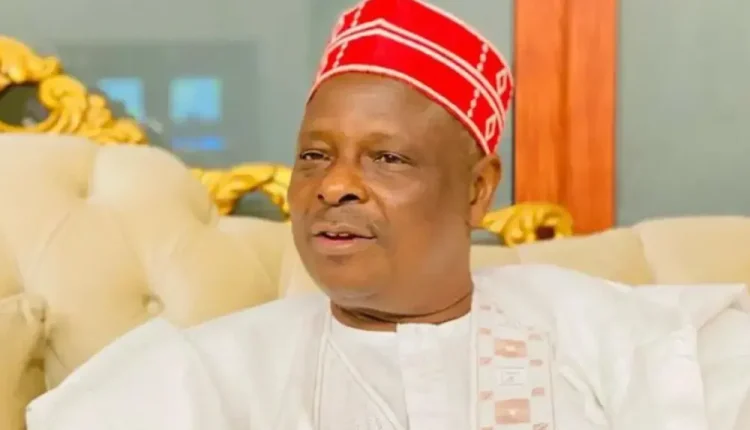BREAKING: Tension In Kano APC Over Kwankwaso’s Alleged Defection Plans

Speculation surrounding the potential defection of former Kano State Governor and 2023 NNPP presidential candidate, Rabiu Musa Kwankwaso, to the All Progressives Congress (APC) is generating mixed reactions among APC stakeholders in Kano State.
While the Kano APC leadership has expressed openness to welcoming Kwankwaso, several party chieftains and youth groups have voiced strong reservations over the move.
State Chairman of the APC, Alhaji Abdullahi Abbas, recently told journalists that the party had received information suggesting Kwankwaso’s impending move to the APC. He disclosed that ward chapters had been directed to prepare for new entrants.
“We advise all those desirous of joining our esteemed party to go to their respective wards and register,” Abbas said. “Also, we want to assure our elected party officials… that they will continue to function as provided by the tenure of their office in the party constitution.”
Despite the public endorsement, insiders say the news has unsettled some APC members, particularly those eyeing the 2027 governorship seat. A party stalwart, who asked not to be named, told The Guardian that the party had already been building its structure to challenge the NNPP-led government in the next election cycle.
“It is worthy of mention that Sen. Barau Jibrin, the Deputy Senate President, has been the pillar behind the APC’s renewed zeal, especially the membership drive,” the source said, noting Barau’s role in attracting notable defectors to the party.
Another chieftain stated: “Barau’s growing influence has put the NNPP and the Kwankwasiyya Movement on edge ahead of the 2027 elections… Apart from keeping the party’s soul together, Barau has succeeded in wooing hundreds of NNPP and Kwankwasiyya loyalists to the APC.”
The source added that Barau was instrumental in the defection of several political heavyweights, including Senator Kawu Sumaila, Kabiru Rurum, Abdullahi Sani Rogo, and Dr. Baffa Bichi.
However, insiders from Barau’s camp are cautious. One source noted that Kwankwaso’s return could cause friction. “Barau has actually positioned himself as the rightful aspirant for the governorship in 2027. However, the coming of Kwankwaso might result in some dislocations within the party,” the source said.
Amid these concerns, Minister of State for Housing and Urban Development, Yusuf Ata, dismissed Kwankwaso’s relevance.
Speaking after a meeting with APC National Chairman, Abdullahi Ganduje, Ata said:
“Kwankwaso is no longer active in Kano. He is struggling to be accommodated in the APC. That may bring a lot of crisis… unless it is a decision from our father [Ganduje] to accommodate him.”
Ata added, “I was in the House of Assembly in 1999 when Kwankwaso was governor. He is no longer attractive in Kano… We have no deal unless the national chairman says yes.”
In the same vein, the APC Youth and Students Council (KASASCO) in Kano, through its Director-General, Yahaya Kabo, declared that Kwankwaso’s return would bring no value to the party.
“Kwankwaso’s political influence has waned… he is now seeking political refuge… But the APC is not a sanctuary for spent political forces,” Kabo said.
He added that under Abdullahi Abbas’ leadership, the APC enjoys strong representation across legislative bodies, and has continued to attract former NNPP members.
Despite these concerns, Ganduje expressed willingness to receive Kwankwaso. “The APC is deepening and widening democracy… We can still have him in, if he wants to join us,” Ganduje said. “When you see your son running to where he would get shelter… it is morally right to accommodate him.”
However, the NNPP in Kano has dismissed the defection rumours. The state chairman, Dr. Hashimu Sulaiman Dungurawa, said the reports were baseless.
“I only heard the talks on social media. If there’s any truth to it, Kwankwaso himself will speak when the time is right,” he told The Guardian.
